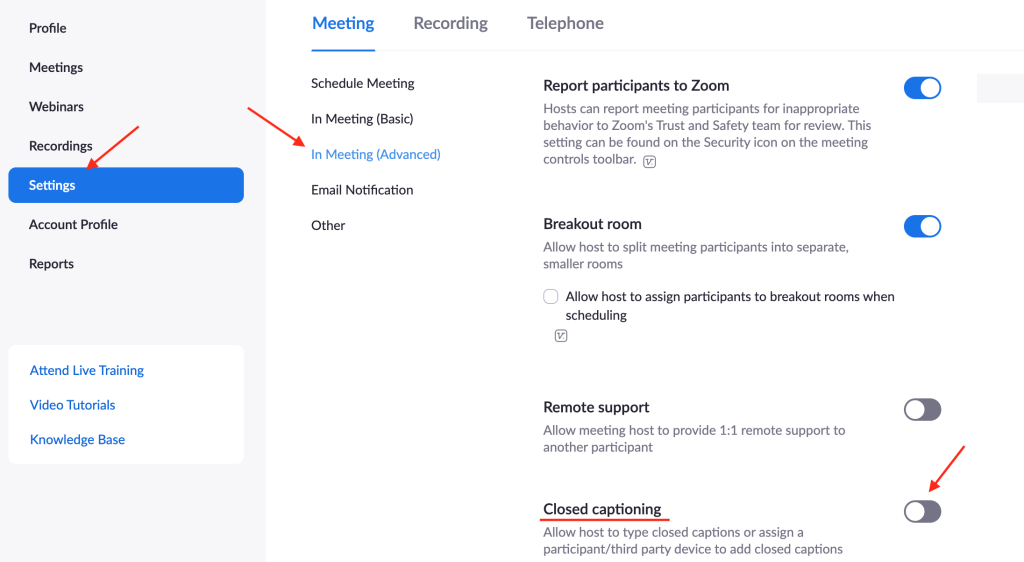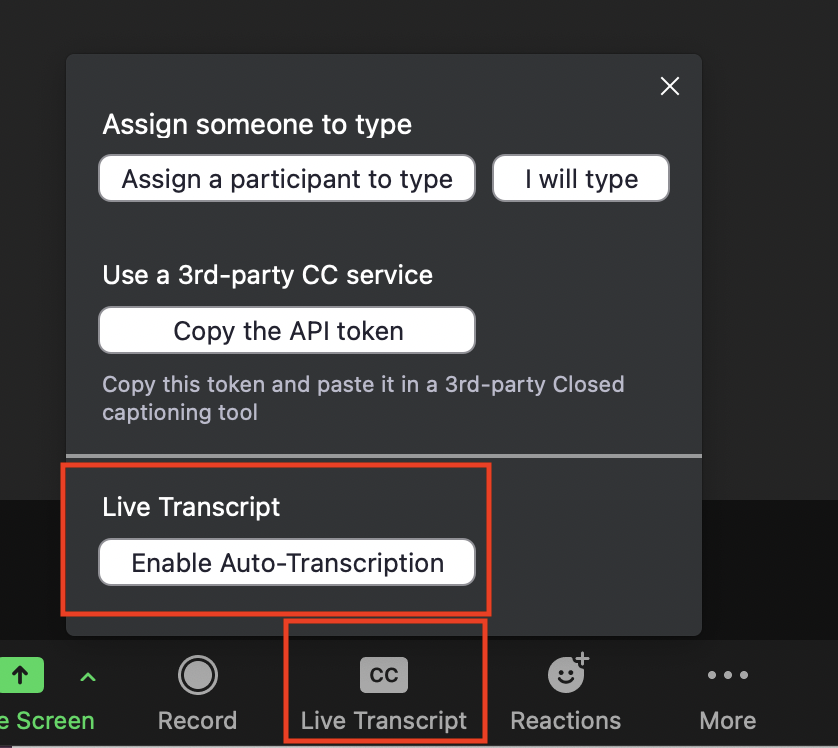As your kids get older and start showing interest in different things, you may start putting them into various classes and workshops on their own. That’s definitely been the case for our family. My child is a preteen and has loads of different interests, many of which we pursue online. While they have good access with their devices (using either a streamer into the laptop or bluetooth connected directly with their hearing aid), they also rely heavily on captioning (for example when the background noise in our home is loud, or the speaker on screen is quiet).
As families with dhh children, we’re all familiar with the importance of captioning and interpreting for increasing access to language. Captioning is always turned on in our home for TV and movie watching. It’s just something we do. However, this isn’t the case for everyone.
Did you know that the closed captioning option isn’t a standard feature when joining a zoom call? Neither did I, until the pandemic forced us all more online. My kids’ piano lessons and martial arts classes were taught online for much of last year and while we were using different platforms I noticed the ability to turn on closed captioning wasn’t available for zoom (it is a clickable feature for Google Hangouts, Skype, Facebook and Youtube).
How to set up captioning in Zoom:


As my own workplace started conducting more meetings online I became familiar with creating more accessible meetings through zoom with closed captioning. Please see the following link for instructions: https://support.zoom.us/hc/en-us/articles/4409683389709-Enabling-or-disabling-closed-captioning-and-live-transcription-services
This made me think about how many other organizers may not know about this! My child attended a four-week babysitters’ course online and before the session started I contacted the organizer and asked about closed captioning. In my request email I also sent along the zoom support link for easy reference. In my experience, people are more likely to help you if you help them do it. They were very surprised but supportive of the request. They had never been asked, nor did they know that this was an option they needed to toggle. While there was some nervousness about the accuracy of captioning and a fear that it could auto-caption “some bad words in error”, they agreed to try. I offered my experience as both a parent (who would never blame the host for that) and as an attendee (we use closed captioning on every meeting and have found it to be very accurate, not to mention its worth for accessibility for all attendees). In the end, the answer was an enthusiastic yes!
This is also something that can be turned on for pre-recorded material on some platforms! My child’s Science class is done online with all pre-recorded material. I noticed that there was no option to turn on the captioning, so I contacted the school. Again, they were unaware that this functionality wasn’t available and quickly converted all the lessons for her grade as well as others.
This summer we attended an outdoor movie at a friend’s home. While it was no big deal to ask a friend to turn on captioning, it occurred to me that this could also be done for a public event, where a simple request to the organizers could end up benefitting many attendees!
In all situations the organizers have been grateful for the information and the request to have their courses and classes be more accessible for everyone. Now when I register for classes online, I try to remember to ask ahead of time. When I get my registration email, I pop off an email to the organizer asking for this option.
Hopefully this will become standard practice as we move forward, but until then you can share the link above with your hosts and just start getting into the habit of asking for accommodations. I try to involve my preteen when I do this. They’ll sit beside me as I type out the email and sometimes I ask them to dictate what I should say. It’s excellent practice for everyone.
BC Hands & Voices Post Note:
Hands & Voices has recently published a helpful document for making online meetings accessible for all, which could also be shared. Take a look here: https://handsandvoices.org/pdf/covid-19/Guideline-Accessibility_Online-PhoneMeetings_18Mar2020_Final.pdf?fbclid=IwAR3svACZ-k81f9t1MuPZiZNOEfiRT1JCi8soN47aTN9YM8bO0FwS_AUQ3g8

